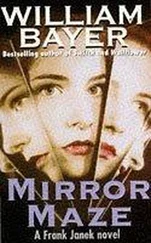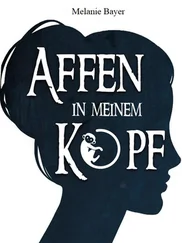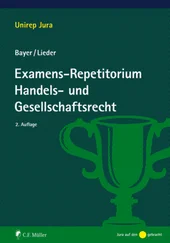William Bayer - Tangier
Здесь есть возможность читать онлайн «William Bayer - Tangier» весь текст электронной книги совершенно бесплатно (целиком полную версию без сокращений). В некоторых случаях можно слушать аудио, скачать через торрент в формате fb2 и присутствует краткое содержание. Жанр: Криминальный детектив, на английском языке. Описание произведения, (предисловие) а так же отзывы посетителей доступны на портале библиотеки ЛибКат.
- Название:Tangier
- Автор:
- Жанр:
- Год:неизвестен
- ISBN:нет данных
- Рейтинг книги:5 / 5. Голосов: 1
-
Избранное:Добавить в избранное
- Отзывы:
-
Ваша оценка:
- 100
- 1
- 2
- 3
- 4
- 5
Tangier: краткое содержание, описание и аннотация
Предлагаем к чтению аннотацию, описание, краткое содержание или предисловие (зависит от того, что написал сам автор книги «Tangier»). Если вы не нашли необходимую информацию о книге — напишите в комментариях, мы постараемся отыскать её.
Tangier — читать онлайн бесплатно полную книгу (весь текст) целиком
Ниже представлен текст книги, разбитый по страницам. Система сохранения места последней прочитанной страницы, позволяет с удобством читать онлайн бесплатно книгу «Tangier», без необходимости каждый раз заново искать на чём Вы остановились. Поставьте закладку, и сможете в любой момент перейти на страницу, на которой закончили чтение.
Интервал:
Закладка:
Gym class-he could see the children dressed in matching tunics doing calisthenics in time to a revolutionary march. Outside it is cold and gray. Snow piled on the ground. The gurgling of old steam radiators in the gym. A sour smell. Ropes to climb. A horse to vault.
Peter comes on Sundays muffled in a heavy woolen coat. He works at a factory in Warsaw. It takes him hours to reach the school. Sometimes he is gay and brings her gifts-a piece of chocolate, a ball, a doll. Other times he's sad, and she thinks he'll weep. But he doesn't. He can only stay an hour. The bus trip back, he tells her, is long and dark.
Two years pass. Hamid sees Kalinka sitting in her classes, exercising in the gym, lying with eyes open in her bed while the other girls sleep. Leaves fall. The winters are cold. She wears mittens and a little woolen cap that covers up her ears. The girls help one another, cut one another's hair. She has friends, but she can no longer remember their names. Nor her teachers. Nor what they taught.
She works with clay, makes pottery. She glazes her little bowls and is pleased by how well they look. She withdraws into herself. Her character becomes oddly formed. The traits Hamid knows so well, her dreaminess, her detachment-they take over as she sits alone for hours, sketching or staring into space. When the teachers talk of politics she falls asleep. There are pictures of Marx and Lenin in every room. Sometimes when the others sing she stands with them and mouths the words. Her teachers become concerned. They regard her as troubled and strange. They try to draw her out. They discuss her in an office while she sits alone on a hard bench outside.
One day some men come-Vietnamese. They speak gently to all the Vietnamese children, tell them a great victory has been won. Soon, they say, you will go back to your country. The children smile. Kalinka feels glad. But she doesn't really understand.
Peter tells her that her mother is dead, that she died a great heroine at Dien Bien Phu. "Now," he says, "it's just the two of us alone. There are people who want to send you back to Vietnam, but I want you to stay with me." He kisses her, whispers to her. She nods to show him she is reassured.
Peter comes to say goodby. There is snow outside. He is bundled in his black wool coat. He kisses her, tells her they'll be reunited soon, that they'll live together in a place where the air is always warm. Then he is gone and her life becomes vague, a long, uninterrupted dream. Seasons change. She receives letters. Peter writes that he is well. When she writes back she must give her letters to authorities at the school. They mail them for her. She does not know where Peter lives.
Leaves fall. Winter comes. Then summer, and autumn, and winter, and around again. One day they bring her a suitcase, tell her to pack her clothes. They give her papers, a passport. She rides an airplane to Paris. Someone meets her, puts her on another plane. When it lands Peter is waiting, ready to carry her in his arms.
That night, for the first time, she sleeps in the back room of La Colombe.
It was strange, her story, so very strange, and full, Hamid felt, of things she didn't say. Long after she fell asleep he lay awake thinking of Peter as a boy in colonial Hanoi, and Kalinka trudging through the snow between gray buildings at the Polish school. It seemed more real to him, all of that, than his raid on Gottshalk's hotel.
A week later he felt depressed. He'd been working long, hard hours in the city, resolving cases at a frightening speed. Frantic to clear up a backlog of dossiers, he'd begun to dispense justice with an iron hand. His staff was amazed. It wasn't like him to be so fierce. "Hamid is turning against the foreigners," he heard Aziz explain. "He has steeled himself against pity. He is cutting out the rot."
Was that true? He didn't know. He only wanted to reclaim Tangier. But the city was intractable. The harder he tried to reclaim it, the more deeply he felt himself engulfed. When he returned home in the evenings he listened to Kalinka, spieling out her story, snatching details here and there from the dreamy past. It was a strange existence for him, passing back and forth between two incoherent worlds. He felt a need to talk to someone decisive. He went to see Mohammed Achar.
They arranged to meet in the doctor's office behind the clinic late on a weekday night. Hamid passed through the usual squabbling water lines on his way up Rue de Chypre, through the odor of disinfectant that hung about the clinic like a fog. There was a nervous young man with Achar who was just leaving as he arrived-Driss Bennani, an architect who worked in city hall. Hamid knew him by sight, nodded to him. Bennani nodded back, then ran out.
"So, Hamid," said Achar after they embraced, "I hear you're cleaning up the beach."
"I thought you'd approve."
"I do, but still I'm surprised. My old easygoing friend, live-and-let-live Hamid, who's been so cozy with the foreigners all these years. Suddenly I hear he's getting tough. What's happened? Why the change?" The doctor poured out two glasses of herbal tea.
"I don't know," said Hamid. "The summers here make me sick."
"As well they should. But why has it taken you so long?"
Hamid shrugged. "Suddenly I detest the disorder of Tangier. I try to impose myself upon it but, of course, I fail. A funny thing, though-I'm beginning to enjoy my power. What do you think? Have I finally become corrupt?"
"Possibly. It happens to policemen. We're not living in a democracy, after all. But in your case I prefer a political explanation. I think you've become disgusted, as I've always been, by the antics of the foreigners here, and it's that disgust that's finally touched you viscerally and driven you into acting tough. I know you're not a political man, Hamid, but you take things very much to heart. You can't fail to be moved by injustice-full pools on the Mountain while our people swelter without water in Dradeb. For years I've heard people say you weren't affected by this. I always defended you. I always thought you felt it. And I always thought one day you'd make a good ally."
"Allied with whom? Is there a conspiracy going on?"
Achar smiled. "Let's not talk about conspiracies, unless we talk about the official ones being plotted in Rabat. Anyway, I wouldn't dream of trying to undermine your loyalty to the regime. But we're old friends. I'm watching your development. You're changing, Hamid, acquiring a will for order. One day you'll come to talk to me about the future, and not just the decadence of the beach."
"Actually I didn't come here to talk about that."
He described the intelligence report that an Israeli agent was coming to Tangier, his theory that he might be coming to kill a European, and Zvegintzov's tip about the Freys. "It's strange," he said. "There's a dilemma in all of this."
"I don't see one."
"Oh-of course there is. Here I have, perhaps, a perfectly fiendish pair-the Freys, Kurt and Inge Becker-people who don't deserve to stay alive. And on the other hand I have, perhaps, a killer, a man coming to murder them in Tangier. I can't sit back and allow someone to commit a crime, particularly a person who works for the secret service of an enemy state. But then who else will execute them? If the Israeli turns up, what am I to do?"
"To me, Hamid, there's no dilemma at all. Israelis and Nazis are all the same-they're foreigners. I'd say keep an eye on both of them and see who kills the other first. Then wrap up your case by killing the one who's left."
Hamid laughed. He knew Achar wasn't serious, but still his joke revealed coldness, the coldness of a surgeon who could become an executioner one day.
Achar refilled his glass. "You know," he said, "this is an exciting time to be alive in the Arab world."
"You really think so?"
Читать дальшеИнтервал:
Закладка:
Похожие книги на «Tangier»
Представляем Вашему вниманию похожие книги на «Tangier» списком для выбора. Мы отобрали схожую по названию и смыслу литературу в надежде предоставить читателям больше вариантов отыскать новые, интересные, ещё непрочитанные произведения.
Обсуждение, отзывы о книге «Tangier» и просто собственные мнения читателей. Оставьте ваши комментарии, напишите, что Вы думаете о произведении, его смысле или главных героях. Укажите что конкретно понравилось, а что нет, и почему Вы так считаете.












